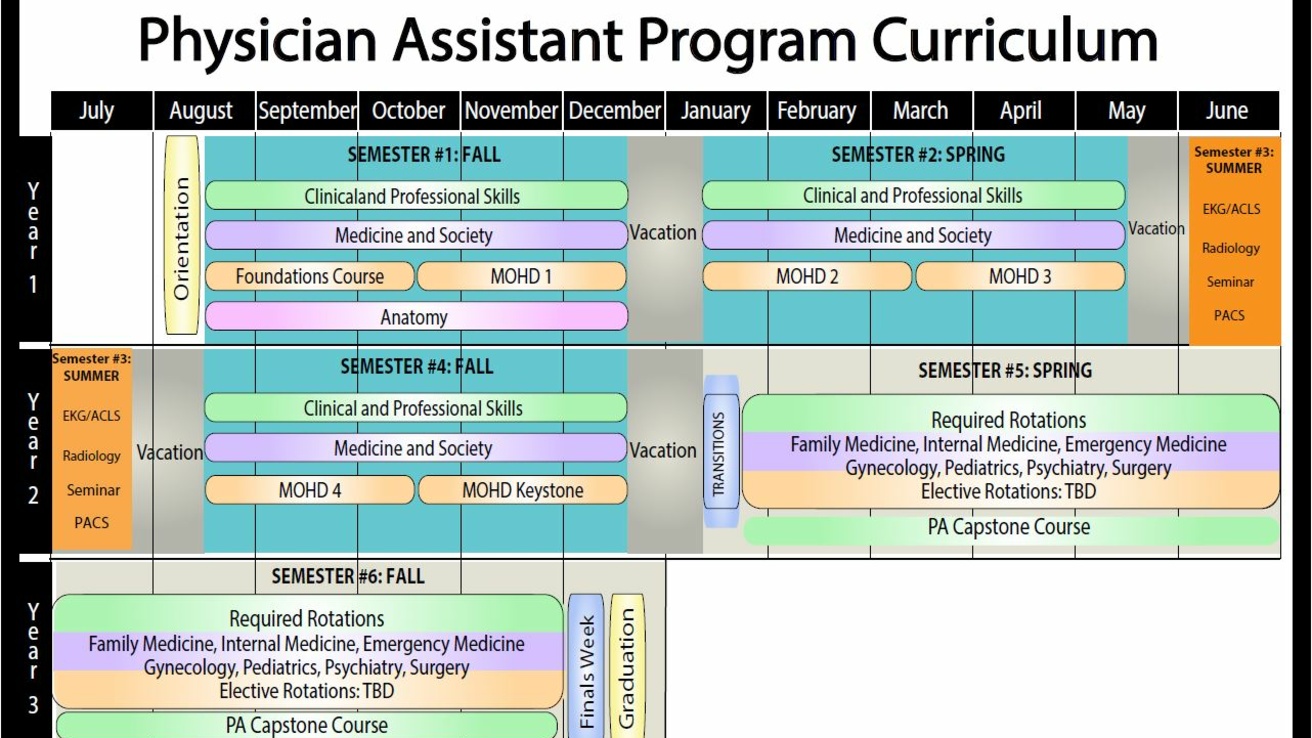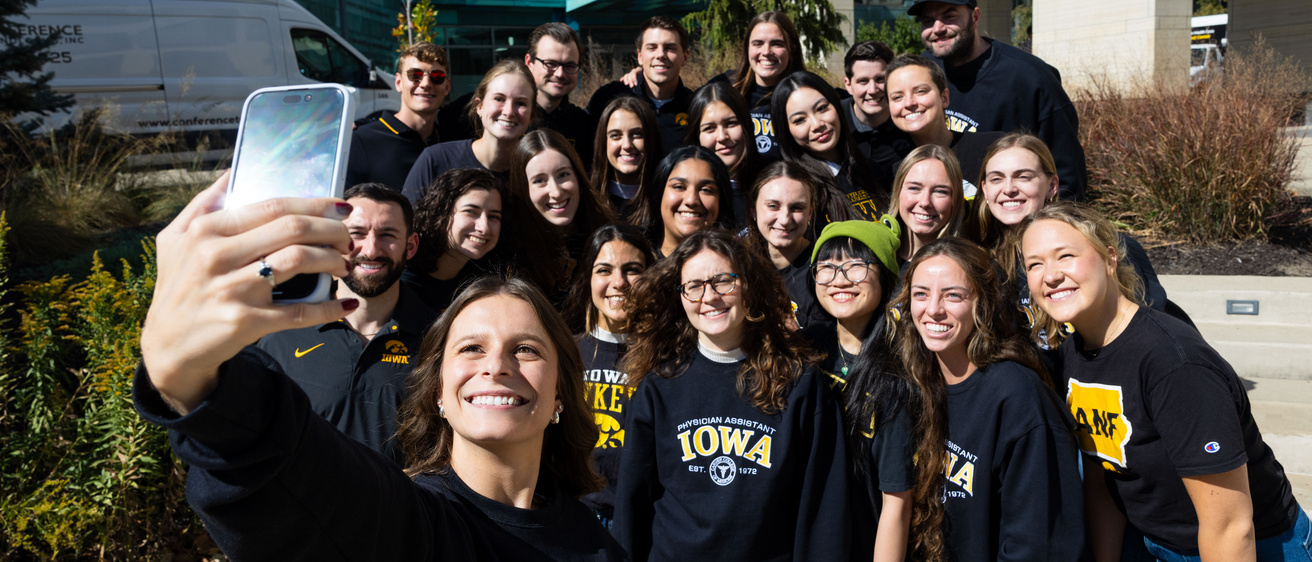Main navigation
The Carver College of Medicine's MPAS curriculum uses an innovative approach that focuses on the integration of basic sciences with clinical application, exposes students to earlier clinical activities, and prepares them for team-based practice.
Didactic coursework is completed with an interprofessional education focus alongside medical students. The PA Program curriculum is 28-months in length and is a total of 128 semester-hours of coursework.
The innovative curriculum consists of a three strand-based education model that extend throughout the MPA curriculum. The three strands of the triple helix curriculum are the Mechanisms of Health and Disease strand, the Medicine and Society strand, and the Clinical and Professional Skills strand. In addition, a Medical Gross Human Anatomy course is placed in the first semester of the didactic curriculum.

Medical Gross Human Anatomy
In Medical Gross Anatomy students learn to identify the various components comprising the human body and how their structures and locations relate to their functions. This includes complete dissection of the human body. The course provides students with much of the new language they will need to communicate accurately and specifically with patients and other clinicians.
Mechanism of Health and Disease (MOHD)
The Mechanisms of Health and Disease (MOHD) curricular strand is comprised of six multi-system mechanisms.
MOHD I and III cover the mechanisms of Oxygenation, Metabolism, and Genetics/Development.
MOHD II and IV cover the mechanisms of Immunology/Inflammation, Locomotion/Integument, and Neuropsychiatry.
MOHD Keystones course is a transition between classroom instruction in mechanisms of health and disease and clinical practice; foundational information from mechanisms of health and disease sequence approached from perspective of what is commonly encountered in clinics; application of information to making diagnostic, and management decisions of common important clinical problem.
Medicine and Society (MAS)
Medicine and Society (MAS) consists of three consecutive, integrated courses in which students learn about disease prevention, health promotion services, public health, epidemiology, health services organizations and delivery, and community dimensions of medical practice.
Clinical and Professional Skills (CAPS)
Clinical and Professional Skills (CAPS) is one of three longitudinal strands used to deliver the integrated undergraduate medical education curriculum at Carver College of Medicine.
The goal of CAPS is to provide students with the knowledge, skills, and attitudes required for professional development and clinical excellence, including the sense of inquiry and lifelong habits of skill acquisition, self-assessment, and reflective practice.
CAPS incorporates the developmental process of learning by offering sequentially more challenging experiences across the curriculum, repeated practice opportunities, observation and feedback, and self-directed learning and reflection.
Students will learn the art and science of medicine through an integrated approach with other strands and in a way that is similar to how they will practice medicine in the future.
Summer Courses
After the first two semesters, there will be an interim component of the curriculum which consists of course work specific to PA training, such as PA licensure, professional practice laws and regulations, credentialing, professional issues, history, and trends. Students will also complete courses in clinical lab medicine, EKG interpretation, clinical applications of radiology, and continue to add to their physical exam and technical procedural skills.
